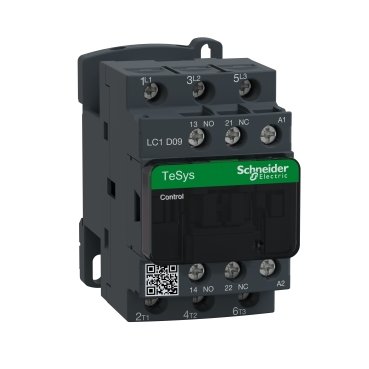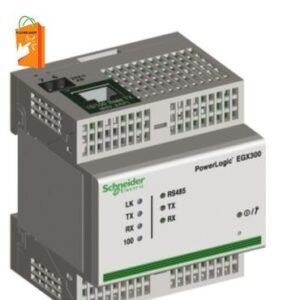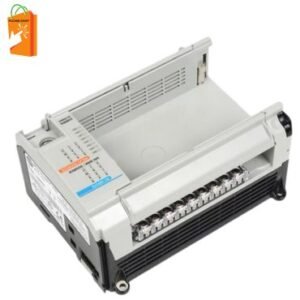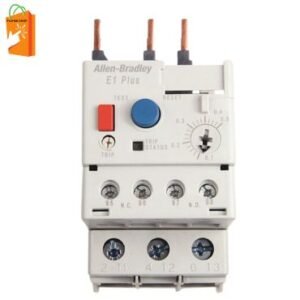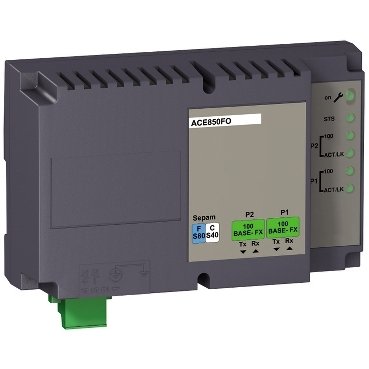Description
| range of product | TeSys Deca. |
|---|---|
| product or component type | Contactor. |
| device short name | LC1D. |
| contactor application | Motor control. Resistive load. |
| utilisation category | AC-3. AC-4. AC-1. AC-3e |
| poles description | 3P |
| [Ue] rated operational voltage | Power circuit: <= 690 V AC 25…400 Hz. Power circuit: <= 300 V DC. |
| [Ie] rated operational current | 9 A (at <60 °C) at <= 440 V AC AC-3 for power circuit. 25 A (at <60 °C) at <= 440 V AC AC-1 for power circuit. 9 A (at <60 °C) at <= 440 V AC AC-3e for power circuit. |
| [Uc] control circuit voltage | 240 V AC 50/60 Hz. |
| motor power kW | 2.2 kW at 220…230 V AC 50/60 Hz (AC-3). 4 kW at 380…400 V AC 50/60 Hz (AC-3). 4 kW at 415…440 V AC 50/60 Hz (AC-3). 5.5 kW at 500 V AC 50/60 Hz (AC-3). 5.5 kW at 660…690 V AC 50/60 Hz (AC-3). 2.2 kW at 400 V AC 50/60 Hz (AC-4). 2.2 kW at 220…230 V AC 50/60 Hz (AC-3e). 4 kW at 380…400 V AC 50/60 Hz (AC-3e). 4 kW at 415…440 V AC 50/60 Hz (AC-3e). 5.5 kW at 500 V AC 50/60 Hz (AC-3e). 5.5 kW at 660…690 V AC 50/60 Hz (AC-3e). |
|---|---|
| motor power hp | 1 hp at 230/240 V AC 50/60 Hz for 1 phase motors. 2 hp at 200/208 V AC 50/60 Hz for 3 phases motors. 2 hp at 230/240 V AC 50/60 Hz for 3 phases motors. 5 hp at 460/480 V AC 50/60 Hz for 3 phases motors. 7.5 hp at 575/600 V AC 50/60 Hz for 3 phases motors. 0.33 hp at 115 V AC 50/60 Hz for 1 phase motors. |
| compatibility code | LC1D. |
| pole contact composition | 3 NO |
| contact compatibility | M2 |
| protective cover | With |
| [Ith] conventional free air thermal current | 25 A (at 60 °C) for power circuit. 10 A (at 60 °C) for signalling circuit. |
| Irms rated making capacity | 250 A at 440 V for a power circuit conforming to IEC 60947. 140 A AC for signalling circuits conforming to IEC 60947-5-1. 250 A DC for the signaling circuit conforming to IEC 60947-5-1. |
| rated breaking capacity | 250 A at 440 V for a power circuit conforming to IEC 60947. |
| [Icw] rated short-time withstand current | 105 A, 40 °C, 10 s for the power circuit. 210 A, 40 °C, 1 s for the power circuit. 30 A, 40 °C, 10 min for the power circuit. 61 A, 40 °C, 1 min for the power circuit. 100 A – 1 s for the signaling circuit. 120 A to 500 ms for the signaling circuit. 140 A to 100 ms for the signaling circuit. |
| associated fuse rating | 10 A gG for the signaling circuit conforming to IEC 60947-5-1. 25 A gG at <= 690 V coordination type 1 for power circuit. 20 A gG at <= 690 V coordination type 2 for the power circuit. |
| average impedance | 2.5 mOhm with 25 A and 50 Hz for a power circuit. |
| power dissipation per pole | 1.56 W AC-1. 0.2 W AC-3. 0.2 W AC-3e. |
| [Ui] rated insulation voltage | Power circuit: 690 V, conforming to IEC 60947-4-1. Power circuit: 600 V CSA-certified. Power circuit: 600 V UL certified. Signaling circuit: 690 V, conforming to IEC 60947-1. Signaling circuit: 600 V CSA-certified. Signaling circuit: 600 V UL certified. |
| overvoltage category | III |
| pollution degree | 3 |
| [Uimp] rated impulse withstand voltage | 6 kV, conforming to IEC 60947. |
| safety reliability level | B10d = 1369863 cycles of contactor with a nominal load conforming to EN/ISO 13849-1. B10d = 20000000 cycles of contactor with mechanical load conforming to EN/ISO 13849-1. |
| mechanical durability | 15 Mcycles. |
| electrical durability | 0.6 Mcycles 25 A AC-1 at Ue <= 440 V. 2 Mcycles 9 A AC-3 at Ue <= 440 V. 2 Mcycles 9 A AC-3e at Ue <= 440 V. |
| control circuit type | AC at 50/60 Hz. |
| coil technology | Without a built-in suppressor module. |
| control circuit voltage limits | 0.3–0.6 Uc (-40–70 °C): drop-out AC 50/60 Hz. 0.8…1.1 Uc (-40…60 °C): operational AC 50 Hz. 0.85…1.1 Uc (-40…60 °C): operational AC 60 Hz. 1…1.1 Uc (60…70 °C): operational AC 50/60 Hz. |
| inrush power in VA | 70 VA, 60 Hz, cosphi 0.75 (at 20 °C). 70 VA, 50 Hz, cosphi 0.75 (at 20 °C). |
| hold-in power consumption in VA | 7.5 VA, 60 Hz, cosphi 0.3 (at 20 °C). 7 VA, 50 Hz, cosphi 0.3 (at 20 °C). |
| heat dissipation | 2…3 W at 50/60 Hz. |
| operating time | 12…22 ms. closing. 4…19 ms. opening. |
| maximum operating rate | 3600 cyc/h, 60 °C. |
| connections – terminals | Power circuit: screw clamp terminals 1 1/4 mm²; cable stiffness: flexible without cable end. Power circuit: screw clamp terminals 2 1/4 mm²; cable stiffness: flexible without cable end. Power circuit: screw clamp terminals 1 1/4 mm²; cable stiffness: flexible with the cable end. Power circuit: screw clamp terminals 2 1…2.5 mm²; cable stiffness: flexible with cable end. Power circuit: screw clamp terminals 1 1/4 mm²; cable stiffness: solid without cable end. Power circuit: screw clamp terminals 2 1/4 mm²; cable stiffness: solid without cable end. Control circuit: screw clamp terminals 1 1/4 mm²; cable stiffness: flexible without cable end. Control circuit: screw clamp terminals 2 1/4 mm²; cable stiffness: flexible without cable end. Control circuit: screw clamp terminals 1 1/4 mm²; cable stiffness: flexible with the cable end. Control circuit: screw clamp terminals 2 1…2.5 mm²; cable stiffness: flexible with cable end. Control circuit: screw clamp terminals 1 1/4 mm²; cable stiffness: solid without cable end. Control circuit: screw clamp terminals 2 1/4 mm²; cable stiffness: solid without cable end. |
| tightening torque | Power circuit: 1.7 N.m. on screw clamp terminals with a screwdriver flat Ø 6 mm. Power circuit: 1.7 N.m. on screw clamp terminals with screwdriver Philips No. 2. Control circuit: 1.7 N.m. on screw clamp terminals with a screwdriver flat Ø 6 mm. Control circuit: 1.7 N.m. on screw clamp terminals with screwdriver Philips No. 2. Control circuit: 1.7 N.m. on screw clamp terminals, with screwdriver pozidriv No. 2. Power circuit: 1.7 N.m. on screw clamp terminals, with screwdriver pozidriv No. 2. |
| auxiliary contact composition | 1 NO + 1 NC. |
| auxiliary contacts type | Type mechanically linked: 1 NO + 1 NC, conforming to IEC 60947-5-1. type mirror contact 1 NC conforming to IEC 60947-4-1 |
| signalling circuit frequency | 25…400 Hz. |
| minimum switching voltage | 17 V for the signaling circuit. |
| minimum switching current | 5 mA for the signaling circuit. |
| insulation resistance | > 10 MOhm for the signaling circuit. |
| non-overlap time | 1.5 ms on de-energization between NC and NO contact. 1.5 ms on energization between NC and NO contact. |
| mounting support | Rail. Plate. |
| standards | CSA C22.2 No. 14. EN 60947-4-1. EN 60947-5-1. IEC 60947-4-1. IEC 60947-5-1. UL 508. IEC 60335-1. |
|---|---|
| product certifications | BV. UL. GOST. CSA. RINA. GL. LROS (Lloyds Register of Shipping). CCC. DNV. UKCA. |
| IP degree of protection | IP20 front face conforms to IEC 60529. |
| protective treatment | TH conforms to IEC 60068-2-30. |
| climatic withstand | Conforming to IACS E10 exposure to damp heat. conforming to IEC 60947-1 Annex Q. Category D exposure to damp heat. |
| permissible ambient air temperature around the device | -40…60 °C. 60…70 °C with derating. |
| operating altitude | 0…3000 m. |
| fire resistance | 850 °C, conforming to IEC 60695-2-1. |
| flame retardance | V1 conforms to UL 94. |
| mechanical robustness | Vibrations contactor open (2 Gn, 5…300 Hz). Vibrations contactor closed (4 Gn, 5…300. Hz). Shocks contactor open (10 Gn for 11 ms). Shocks contactor closed (15 Gn for 11 ms). |
| height | 77 mm. |
| width | 45 mm. |
| depth | 86 mm. |
| net weight | 0.32 kg. |
| Unit Type of Package 1 | PCE |
|---|---|
| Number of Units in Package 1 | 1 |
| Package 1 Height | 5.0 cm. |
| Package 1 Width | 9.2 cm. |
| Package 1 Length | 11.2 cm. |
| Package 1 Weight | 352.0 g. |
| Unit Type of Package 2 | S02. |
| Number of Units in Package 2 | 20 |
| Package 2 Height | 15.0 cm. |
| Package 2 Width | 30.0 cm. |
| Package 2 Length | 40.0 cm. |
| Package 2 Weight | 7.426 kg. |
| Unit Type of Package 3 | P06. |
| Number of Units in Package 3 | 320. |
| Package 3: Height | 77.0 cm. |
| Package 3 Width | 80.0 cm. |
| Package 3 Length | 60.0 cm. |
| Package 3: Weight | 127.316 kg |
The LC1D09U7 is part of Schneider Electric’s TeSys D range, known for its reliability and efficiency in motor control and industrial automation applications. This three-pole (3P) contactor is designed to handle AC-3 motor loads, providing robust performance in various demanding environments.
Key Features
- Three-Pole Design (3P):
- The LC1D09U7 features a three-pole design, with all poles normally open (3 NO). This configuration is ideal for switching three-phase motors and other AC loads.
- AC-3 Duty Rating:
- The contactor is rated for AC-3 duty, making it suitable for controlling squirrel-cage motors. It ensures reliable operation for starting and stopping motors up to 9 kW (12 HP) at 400 volts.
- Coil Voltage:
- The LC1D09U7 comes with a 230V AC coil, ensuring compatibility with standard power supplies in industrial settings.
- Compact and robust construction:
- Designed to save space, the contactor features a compact footprint while maintaining high durability. It is built to withstand the mechanical and electrical stresses of industrial applications.
- Easy Installation:
- The TeSys D contactor is designed for quick and easy installation, with clear labeling and accessible terminals. It also supports integration with auxiliary contacts and accessories for enhanced functionality.
- High Mechanical and Electrical Endurance:
- The LC1D09U7 is designed for long life, with a high mechanical endurance of up to 10 million operations and electrical endurance suitable for extensive switching operations.
- Compliance and Safety:
- The contactor complies with international standards, including IEC 60947, ensuring it meets safety and performance requirements. It is also UL-listed and CSA-certified.
Applications
- Motor Control:
- Primarily used for starting and stopping motors, the LC1D09U7 is ideal for applications where reliable motor control is essential, such as conveyors, pumps, fans, and compressors.
- Industrial Automation:
- The contactor is well-suited for integration into automated systems, providing control and protection for various industrial processes.
- Power Distribution:
- Suitable for use in power distribution panels, the LC1D09U7 can manage switching operations for different types of electrical loads.
- HVAC Systems:
- It is used in heating, ventilation, and air conditioning systems to control the operation of compressors and fan motors, ensuring efficient climate control.
- Lighting Control:
- The contactor can also be used for switching large lighting loads, providing reliable control for commercial and industrial lighting systems.

